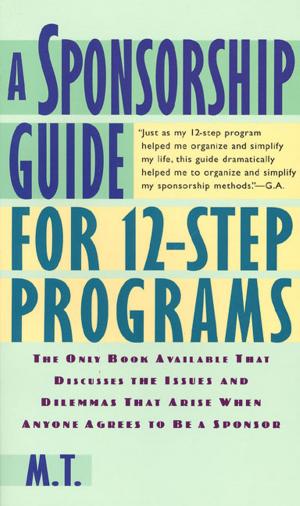In the Name of Science
A History of Secret Programs, Medical Research, and Human Experimentation
Nonfiction, Science & Nature, Science, Other Sciences, Experiments & Projects, Religion & Spirituality, Philosophy, Ethics & Moral Philosophy| Author: | Andrew Goliszek | ISBN: | 9781429997935 |
| Publisher: | St. Martin's Press | Publication: | November 15, 2003 |
| Imprint: | St. Martin's Press | Language: | English |
| Author: | Andrew Goliszek |
| ISBN: | 9781429997935 |
| Publisher: | St. Martin's Press |
| Publication: | November 15, 2003 |
| Imprint: | St. Martin's Press |
| Language: | English |
Science, as Andrew Goliszek proves in this compendious, chilling, and eye-opening book, has always had its dark side. Behind the bright promise of life-saving vaccines and life-enhancing technologies lies the true cost of the efforts to develop them. Knowledge has a price; often that price has been human suffering. The ethical limits governing use of the human body in experimentation have been breached, redefined, and breached again---from the moment the first plague-ridden corpse was heaved over the fortifications of a besieged medieval city to the use of cutting-edge gene therapy today.
Those limits are in constant need of redefinition, for the goals and the techniques have become both more refined and more secretive. The German and Japanese human experiments of the 1930s and 1940s horrified the world when they came to light. These barbaric exercises in pseudoscience grew out of assumptions of racial superiority. The subjects were deemed subhuman; ordinary guidelines could therefore be suspended. What has happened in the decades since World War II has differed only in degree. Explicitly or implicitly, any organization or government that undertakes or sponsors scientific research applies some measure of human worth. Experimentation rests upon an equation that balances suffering against gain, the good of the collective against the rights of the individual, and the risk of unknown consequences against the rewards of scientific discovery.
Everything depends upon who makes that equation. The sobering and gripping accumulation of evidence in this book proves exactly what has been justified in the name of science. The science of "eugenics" justified enforced sterilization. The need to gain an upper hand in the Cold War justified CIA experiments involving mind control and drugs. The desperate race to control nuclear proliferation was used to justify radiation experiments whose effects are still being felt today. Chemical warfare, gene therapy, molecular medicine: These subjects dominate headlines and even direct our government's foreign policy, yet the whole truth about the experimentation behind them has never been made public.
Though not a cheering book, In the Name of Science is a crucially important one, and it deserves a wide audience. A biologist by training, Goliszek presents each topic clearly and explains fully its significance and implications. Connecting the history of scientific experimentation through time with the topics that are likely to dominate the future, he has performed an invaluable service. No other book on the market provides the research included here, or presents it with such persuasive force.
Science, as Andrew Goliszek proves in this compendious, chilling, and eye-opening book, has always had its dark side. Behind the bright promise of life-saving vaccines and life-enhancing technologies lies the true cost of the efforts to develop them. Knowledge has a price; often that price has been human suffering. The ethical limits governing use of the human body in experimentation have been breached, redefined, and breached again---from the moment the first plague-ridden corpse was heaved over the fortifications of a besieged medieval city to the use of cutting-edge gene therapy today.
Those limits are in constant need of redefinition, for the goals and the techniques have become both more refined and more secretive. The German and Japanese human experiments of the 1930s and 1940s horrified the world when they came to light. These barbaric exercises in pseudoscience grew out of assumptions of racial superiority. The subjects were deemed subhuman; ordinary guidelines could therefore be suspended. What has happened in the decades since World War II has differed only in degree. Explicitly or implicitly, any organization or government that undertakes or sponsors scientific research applies some measure of human worth. Experimentation rests upon an equation that balances suffering against gain, the good of the collective against the rights of the individual, and the risk of unknown consequences against the rewards of scientific discovery.
Everything depends upon who makes that equation. The sobering and gripping accumulation of evidence in this book proves exactly what has been justified in the name of science. The science of "eugenics" justified enforced sterilization. The need to gain an upper hand in the Cold War justified CIA experiments involving mind control and drugs. The desperate race to control nuclear proliferation was used to justify radiation experiments whose effects are still being felt today. Chemical warfare, gene therapy, molecular medicine: These subjects dominate headlines and even direct our government's foreign policy, yet the whole truth about the experimentation behind them has never been made public.
Though not a cheering book, In the Name of Science is a crucially important one, and it deserves a wide audience. A biologist by training, Goliszek presents each topic clearly and explains fully its significance and implications. Connecting the history of scientific experimentation through time with the topics that are likely to dominate the future, he has performed an invaluable service. No other book on the market provides the research included here, or presents it with such persuasive force.















